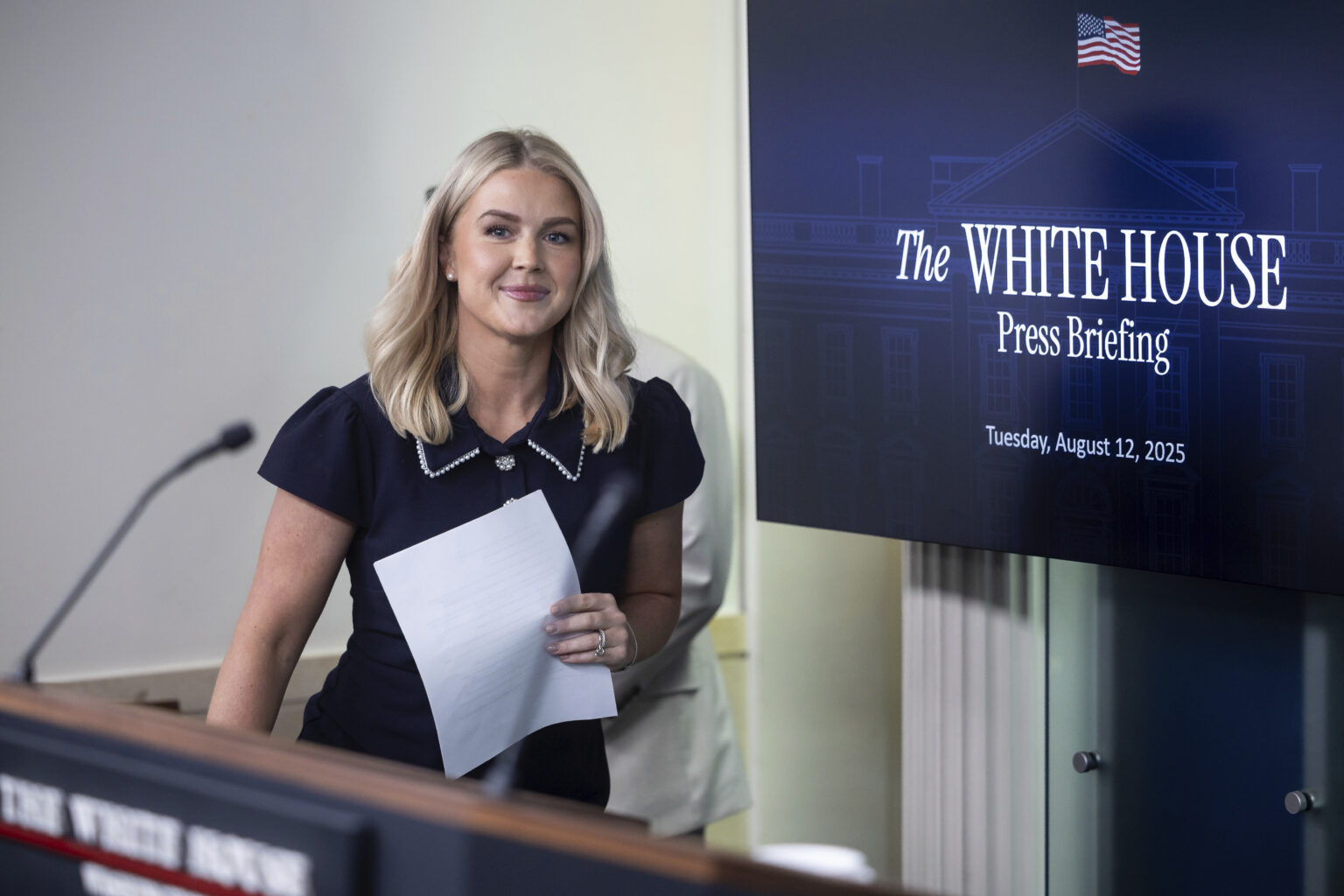Two months after President Donald Trump called it “the most popular bill ever signed,” congressional Republicans are facing a sputtering effort to sell their sprawling domestic policy law — and they’re getting fresh advice Wednesday from top administration officials.
During a morning briefing, White House press secretary Karoline Leavitt and James Blair, the president’s top political aide, are set to walk House Republicans, and later their staffs, through the most popular pieces of the megabill that Trump wants them to tout ahead of next year’s midterms. Tony Fabrizio, a top Trump pollster, will also present a slate of fresh polling on the tax cut and spending law that Trump signed on July 4, according to three people granted anonymity to discuss plans for the private briefing.
The core message, according to one of the people who was briefed on the planned presentation, is that Republicans should focus on the bill’s tax cuts for “working families” — including the elimination of income taxes on some tips and overtime and increases to the child tax credit and employer child care tax credit.
“The overarching point is that Republicans can control their own outcomes in the midterms if they just talk to key voters about what voters care about and highlight for those voters what we have done for them so far and what we’re planning to do next,” the person said, urging Republicans to “just keep the main thing the main thing.”
Trump acknowledged a rare branding misstep last week, admitting that the name of the law — the One Big Beautiful Bill Act — could be leaving voters mystified about what the legislation actually does.
House Republicans say they’re all ears for more advice. But many also strongly believe they’ve been doing a good job already selling the bill they spent six grueling months trying to pass.
“He is a marketer,” Rep. August Pfluger (R-Texas) said about Trump Tuesday. “He will figure it out.”
The “one big, beautiful bill” branding had its origin in a long-running fight between the House and Senate over whether to unite the GOP domestic policy agenda in a single bill or multiple bills. Trump embraced the House’s one-bill sales pitch to the point that he made it the law’s formal name.
It was a departure from the name of the signature legislation from Trump’s first term — the Tax Cuts and Jobs Act — which put the purported benefits of the legislation front and center.
Trump said last week that the “big, beautiful bill” talk was “good for getting it approved, but it’s not good for explaining to people what it’s all about.”
Some Hill Republicans bristle at the notion their massive bill isn’t being well received or understood by voters — despite a spate of angry crowds at GOP lawmakers’ town halls and alarming polling that shows dismal views of the bill’s safety-net cuts and deficit impact. But they are willing to take direction from Trump on their sales pitch.
House Budget Chair Jodey Arrington (R-Texas), who helped shepherd the legislation, said it was “the substance of the bill that makes it so great” but said he was open to hearing about a new sales pitch.
“I don’t know how I would change any of the wins, no matter what the title of the bill is,” he said. “It’s a big, beautiful win for the country and it’s going to make a big difference.”
Senate Finance Chair Mike Crapo (R-Idaho), another key leader on the bill, acknowledged that Republicans are still working to counter months of Democratic attacks. The trillions of dollars of tax cuts orchestrated by Crapo’s committee were largely extensions of current law rather than brand-new reductions. Democrats have teed off on restrictions Republicans imposed on Medicaid and other safety-net programs to pay for the tax portion of the bill.
“I don’t know that the name of the bill is really that definitive about the messaging on it,” he said. He added that Republicans need to “make it very clear that the so-called cuts in Medicaid were not what they are being described in the media, and in fact that they were true, waste, fraud and abuse.”
“There’s so much mischaracterization of the bill,” he said. “I just think it’s getting the information out.”
One of the people granted anonymity to discuss plans for Wednesday’s House GOP briefing said Democrats’ attacks “are easily refutable and a recipe for disaster for them in the midterms, as long as Republicans execute the appropriate counter messaging.”
“We are going to highlight the issues on which the party’s brand and trust factor is strong, and on which issues it can be shored up with the appropriate messages to voters,” the person said.
“While congressional Republicans’ image has room for improvement with key voting blocs, congressional Democrats’ image is completely and totally in the toilet,” the person added.
While Democrats have undertaken a national blitz to undermine what they are calling the “big, ugly bill,” some Republicans have already efforted a rebrand of the massive legislation, focusing on how the bill will specifically help “working families.”
Sen. Katie Britt (R-Ala.), a close Trump ally and senior appropriator, has been touting passage of the “Working Family Tax Cuts Bill.”
But others argue it’s the results of the bill that will speak for themselves, not the name. Rep. Andy Biggs, a Republican who is running to be governor of Arizona, said that “as the tax stuff and everything kicks in, that’ll ensure the popularity of the bill.”
“I usually refer to it as the BRB, the Budget Reconciliation Bill, but I don’t see a problem with its name,” Biggs added. “More than the name, I think the actual results will determine how popular the bill is.”
Calen Razor and Jennifer Scholtes contributed to this report.
Read the full article here


